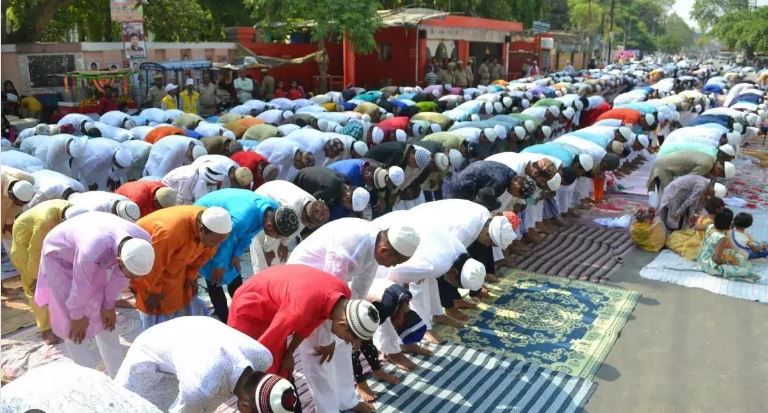Before Eid-ul-Fitr arrives Meerut Police established rigid rules which limit public road namaz prayers. Police authorities declared prayers on public roads will not be permitted during this year so violators will receive legal penalties. The authorities will take away driving licenses and passports from anyone caught performing namaz on public roads. Individuals who face criminal charges must receive a Court-sanctioned No Objection Certificate (NOC) before applying for new documents.
Surveillance Ramped Up
The administration authorised this policy after penalising approximately 80 individuals for disobeying the same restrictions during the previous year. Police have implemented strict surveillance through drones and CCTV cameras to monitor sensitive areas and prevent disturbances. Security forces operate throughout the city to maintain order, while uniformed officers and plainclothes officers keep watch in areas with high-risk potential. Social media platforms will receive constant monitoring to stop the circulation of rumors and attempts to create unrest.
Union Minister Jayant Chaudhary posted on social media to voice his concern after seeing police tactics that replicated George Orwell’s famous book 1984. He pointed out that while regulating public space is reasonable, the authorities should focus on engaging in constructive conversations with the community to encourage compliance instead of taking extreme measures.
Religious Leaders in Dialogue with Authorities
Superintendent of Police Ayush Vikram Singh from Meerut underscored the requirement for Muslims to perform their Eid prayers only in specified mosques and Eidgahs. The local government along with the religious leaders has implemented this to achieve peaceful mosque observances throughout the celebration. The implementation of flag marches together with enhanced security patrols will become additional safety measures for sensitive areas to prevent congestion.
Other regions within Uttar Pradesh like Aligarh, Ghaziabad and Hathras have received similar directive regulations. Local police forces from these areas are working toward appropriate Eid prayer locations which exclude public areas. Public safety requirements are being supported by physical and technological surveillance methods from authorities.


